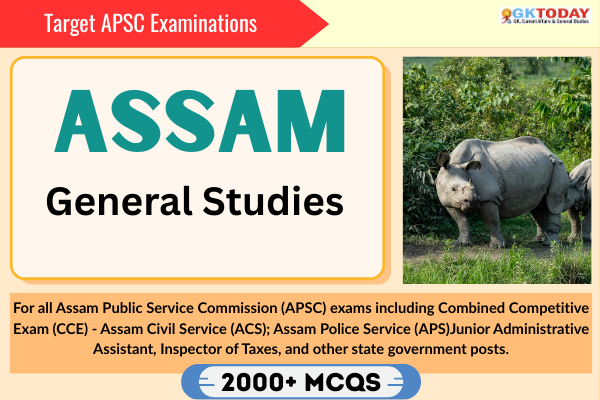Rashtriya Swayamsevak Sangh Establishment (1925)

The Rashtriya Swayamsevak Sangh (RSS), founded in 1925 in Nagpur, Maharashtra, is one of the most influential socio-cultural organisations in India. Established with the objective of promoting national unity, discipline, and cultural regeneration, the RSS has played a significant role in shaping the ideological and organisational framework of modern Indian society and politics.
Historical Background
The early 20th century was marked by intense nationalist activity in India. The country was under British colonial rule, and the Indian National Congress had emerged as a major force in the struggle for independence. However, the period also saw communal divisions and a perceived decline in traditional Hindu unity.
In this context, Dr. Keshav Baliram Hedgewar, a physician and freedom fighter from Nagpur, founded the RSS on 27 September 1925 (coinciding with Vijayadashami). Influenced by the ideas of national pride, self-discipline, and cultural revival, Hedgewar envisioned an organisation that would unite Hindus across caste, linguistic, and regional barriers through a network of disciplined volunteers.
The RSS drew intellectual inspiration from the Hindu Mahasabha, as well as nationalist figures like Bal Gangadhar Tilak and Vinayak Damodar Savarkar, particularly in their advocacy for cultural nationalism and self-reliance.
Founding Ideology and Objectives
The foundational ideology of the RSS centres around the concept of Hindutva, or cultural nationalism, emphasising India as a civilisation defined by its ancient traditions, language, and values rather than merely its political boundaries. The RSS aimed to:
- Promote unity and strength among Hindus.
- Develop character, discipline, and patriotism among the youth.
- Foster social harmony by eliminating caste-based and regional divisions.
- Contribute to the national movement through cultural and moral rejuvenation rather than direct political action.
The organisation’s motto, “Vasudhaiva Kutumbakam” (the world is one family), reflects its belief in universal brotherhood rooted in Indian cultural ethos.
Organisational Structure and Activities
The RSS operates through a highly decentralised yet cohesive structure. The basic unit is the “Shakha” (branch), where members, known as Swayamsevaks, assemble daily for physical training, moral instruction, and discussions on social and national issues.
Key features of the RSS’s organisational structure include:
- Sarsanghchalak (Chief): The supreme head of the organisation.
- Prant and Zilla Units: Regional and district-level branches.
- Shakhas: Local grassroots units forming the operational base.
Early activities of the RSS focused on character building, physical fitness, and patriotic education rather than political participation. Uniforms, drills, and disciplined routines became hallmarks of the organisation.
By the late 1930s, the RSS had begun expanding rapidly across Maharashtra and into other parts of India, establishing a growing network of volunteers.
Growth under Successive Leadership
After Dr. Hedgewar’s death in 1940, Madhav Sadashiv Golwalkar (Guruji) became the Sarsanghchalak and played a defining role in expanding and consolidating the RSS. Golwalkar emphasised the ideological foundation of the organisation, articulating its vision of a culturally unified India.
Under his leadership, the RSS extended its influence through the creation of numerous affiliated organisations collectively known as the Sangh Parivar, including:
- Bharatiya Jana Sangh (1951) – the political wing (precursor to the Bharatiya Janata Party).
- Vishwa Hindu Parishad (VHP) – focusing on religious and cultural outreach.
- Akhil Bharatiya Vidyarthi Parishad (ABVP) – the student wing.
- Bharatiya Mazdoor Sangh (BMS) – the labour wing.
These affiliated bodies helped the RSS integrate into multiple aspects of national life, from education and labour to politics and rural development.
Role in the Indian Freedom Movement
Though the RSS did not directly participate in violent or civil disobedience movements led by the Indian National Congress, its founder and members supported nationalist causes. The organisation’s focus remained on building a disciplined and morally upright citizenry to strengthen India from within.
However, the British colonial government viewed the RSS with suspicion due to its nationalist tone and banned it briefly in 1942, alleging involvement in anti-British activities during the Quit India Movement, although no evidence substantiated the claim.
Post-Independence Period and Bans
Following India’s independence in 1947, the RSS continued its social and cultural activities. However, after the assassination of Mahatma Gandhi in January 1948 by Nathuram Godse, a former member of the Hindu Mahasabha who had earlier been associated with the RSS, the government imposed a ban on the organisation.
An investigation found no evidence linking the RSS to the assassination, and the ban was lifted in 1949 after the RSS agreed to adopt a formal constitution and operate as a non-political, cultural body.
Contributions to Nation-Building
Over the decades, the RSS has contributed to numerous spheres of Indian society, including:
- Education: Through schools and institutions run by Vidya Bharati.
- Rural Development: Initiatives under Gram Vikas projects to promote self-sufficiency.
- Disaster Relief: Voluntary services during natural calamities such as earthquakes and floods.
- Social Harmony: Programmes aimed at integrating marginalised communities and eradicating caste discrimination.
Its emphasis on discipline, service, and nationalism has inspired millions of volunteers across generations.
Influence on Indian Politics
Though officially a non-political body, the RSS has had a profound influence on Indian politics through its ideological and organisational link with the Bharatiya Janata Party (BJP). The rise of the BJP since the 1980s, especially under leaders like Atal Bihari Vajpayee and L. K. Advani, has reflected the growing political prominence of RSS-aligned ideology.
Many Indian political figures have been associated with the RSS during their formative years, reinforcing its long-term impact on governance and policy-making.
Legacy and Contemporary Relevance
As of the 21st century, the RSS has grown into one of the largest voluntary organisations in the world, with millions of members and tens of thousands of Shakhas across India and abroad. It continues to promote nationalism, social service, and cultural identity, while remaining a subject of public debate due to its ideological positions.






